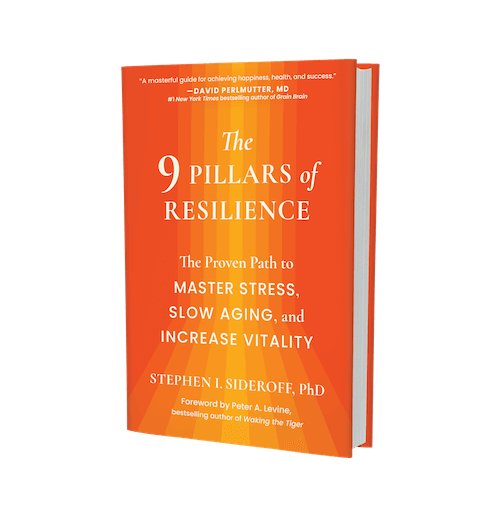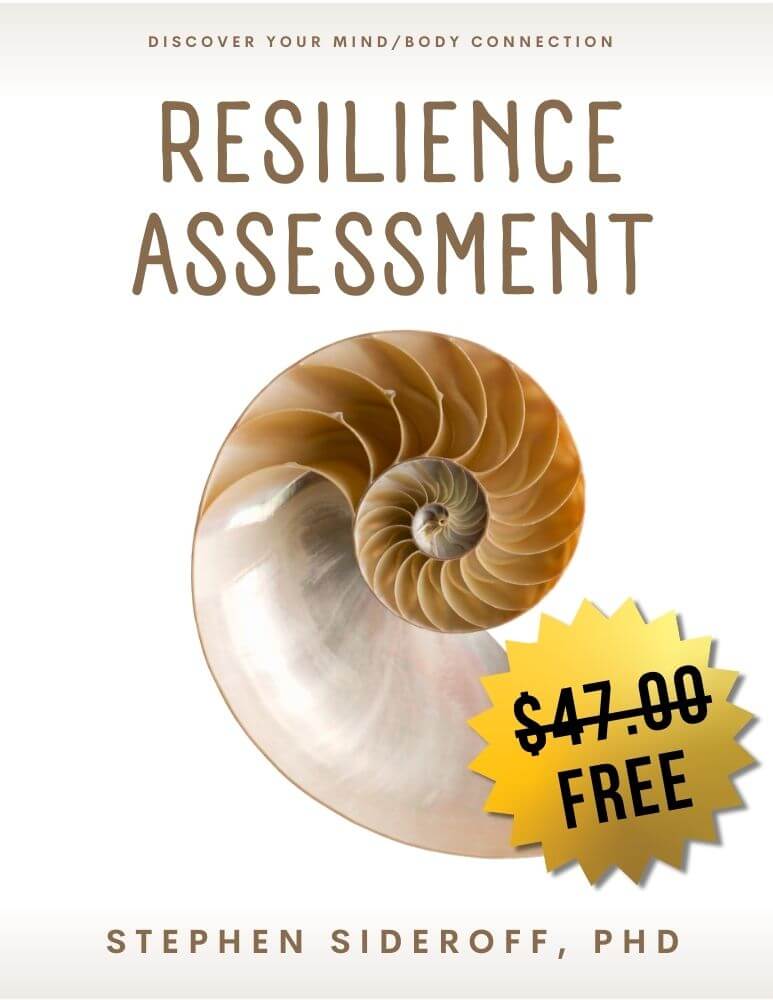Steps for finding the best way to be resilient during difficult times.
I’m by nature and by conditioning a positive person. But I’m not a “Pollyanna.” I am a realist and there has been plenty to be real about these last few years. Two years ago, with the advent of COVID-19, I began sending out daily messages to strengthen people’s ability to deal with the new level of danger, cope, and become more resilient. We were extremely fortunate to have found an effective vaccine in a year. However, at that point, most people were already stretched very thin, emotionally and physically.
And now the world is hit by a double whammy. An invasion that has taken uncertainty and danger to a new level. Over the past two weeks I’ve realized that on top of the existing pandemic, we were handed a “pan-trauma.” One’s basic need is for safety and security—for survival. COVID was an existential threat to survival. And now we have a war started by a man who can destroy the world. This goes beyond the borders of Ukraine or Russia. It is the ultimate in potential disrespect for boundaries. Whether you are conscious of this level of danger, or it sits just below your awareness, it is a potential deep source of anxiety and stress.
Better to name the danger than ignore it
How do you cope with uncontrollable and very dangerous circumstances? There is a tendency to push them out of awareness, distract yourself, or find some other way of denying reality. This is so very common with how you deal with painful emotions: you find a way to block them from awareness. But these efforts, while they appear to serve you, can create more problems. They are the seeds of anxiety and depression that also weaken your ability to ground and center yourself. In order to best cope and be resilient with danger and uncomfortable feelings—sources of stress—it is important to name them and “put them on the table” to be most effectively handled. Remember, stress can speed up the aging process.
There is always a “best way” that I refer to as “the path”
You want a way of mitigating or minimizing the negative impact of stress and very scary feelings. A primary goal in this process is to find a way to feel in control and take action. Another primary goal is to find the most positive way to approach any difficult situation. This can begin by recognizing that there is always a best way to approach any situation. The key here is that best is different than ideal.
As soon as you believe that there is a best way, it already points you in the direction of looking for it and thus grabbing the “reins” of your life and in a sense, taking some level of control. Research has demonstrated that a sense of control helps to modify the impact of stress. Hans Selye referred to the difference between distress and eustress and how they have different psychophysiological effects.
Face your fears and discomfort
Whether we are talking about allowing painful feelings to come to the surface or acknowledging the potential dangers of the current invasion of Ukraine, it is all about accepting reality. And yes, this does take courage. In fact, the courage you display in facing these tough issues, in itself, results in your development of greater resilience. So, take space and time to acknowledge and accept how today’s reality is impacting you emotionally and mentally. Allow yourself to experience your feelings without distracting from them. While this doesn’t change reality, it does allow them to move through your body so they can be released. This might then motivate you to be more proactive and prepared should the situation escalate.
Self-trust and resilience
Demonstrating courage to face difficult issues and feelings lets you know that you can count on yourself. You can trust yourself. The very act of facing difficulties makes subsequent difficulties easier to face. This is how courage and confidence develop: “I can count on myself to stand up for myself.” When we retreat or withdraw—which is what happens when we avoid—we give ourselves a very different message: “I can’t count on myself. I don’t have the courage.” This increases uncertainty and lowers your resilience. By the way, notice that the benefits of having the courage to face your difficulties does not require a specific result; the benefits derive from taking action.

What are the keys to optimal coping with the realities of today? I have listed nine, to represent each of my nine pillars of resilience:
1. It all starts with being good and compassionate with yourself. In your self-talk, come from a place of love, acceptance, compassion, support, and self-care. This includes expressing self-compassion for your current experience.
2. Recognize, treasure, and nurture positive close relationships. Share and get support for your feelings with those you trust. Your stress will be eased by the emotional nourishment of those close to you.
3. During these stressful times, show gratitude for your blessings by finding a way to be in service. Move the energy. This grows your horizon and reduces the impact of daily hassles. The energy you put out to help those suffering, such as the people of Ukraine, and for the common good, will come back to you.
4. Practice recovering as quickly as possible from all your stressful experiences. If you watch the news and it’s upsetting, follow that by consciously taking time to breathe, ground yourself, and recover.
5. Approach every situation with a positive mindset. This means focusing on positive expectations and an attitude of persistence and grit: “Whatever it takes, I’m going to do it.” The more you decide and commit to a healthy perspective, the easier the process becomes.
6. Be current with your emotions, as noted above. Find a way to get your feelings out and then to let go.
7. Hold the intention to be present as much as possible. Have a plan to remind yourself to tune into your awareness throughout the day. Bring yourself present by noticing what you are taking in through your five senses. You are most effective when you are present.
8. Be willing to accept and adjust to current realities. This might mean changing plans or goals for a greater chance of success and to reduce your stress.
9. Hold the goal of reaching completion with actions and projects. Be persistent and don’t give up. For better results, schedule a specific time and day for an important action. And then appreciate your efforts.
To support your resilience in the face of a combined pandemic and pan-trauma, I will again be sending out daily “steps” of mastering resilience beginning in April. You can go to my website to sign up.

